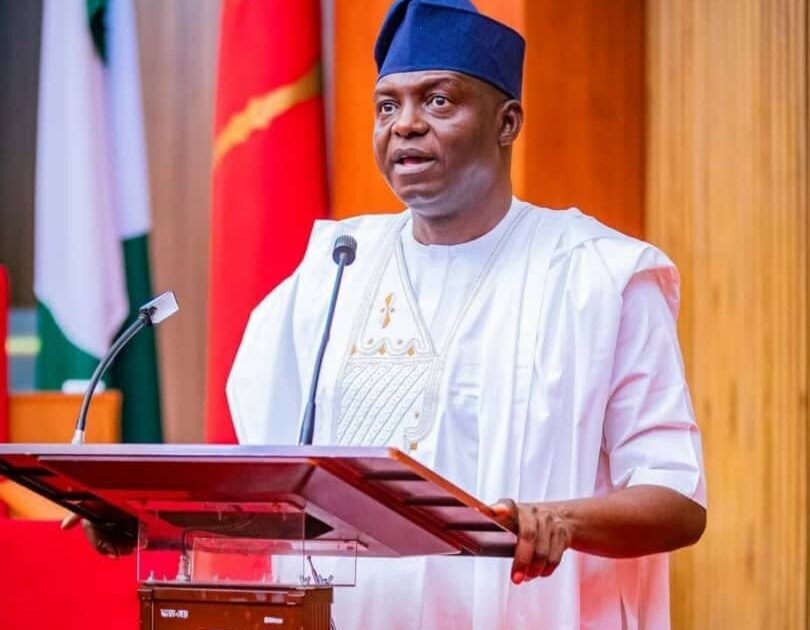The All Progressives Congress (APC) is navigating a period of transition in its leadership, with Nentawe Yilwatda assuming the mantle of National Chairman from his predecessor, Abdullahi Ganduje. This transition, however, is marked by a distinct departure from the often-fraught relationships between predecessors and successors that have plagued Nigerian politics. Yilwatda, recognizing the depth of Ganduje’s experience and political network, has openly embraced a collaborative approach, seeking to leverage his predecessor’s expertise for the betterment of the party. This dynamic, underscored by President Bola Tinubu’s directive for the two leaders to work closely, sets a precedent for a more harmonious and potentially more effective leadership structure within the APC.
Yilwatda’s deference to Ganduje stems from a deep appreciation of the latter’s long and storied involvement in Nigerian politics. While Yilwatda was still a student, Ganduje was already a seasoned political player, active since the Second Republic, a period marked by significant political developments in Nigeria. Yilwatda recounted anecdotes from his youth, illustrating Ganduje’s presence in the political landscape during a time when Yilwatda himself was only beginning to grasp the concept of politics. This historical context emphasizes the significant gap in experience between the two men, and underscores Yilwatda’s recognition of the valuable insights Ganduje can offer. He emphasized his role as a coordinator, acknowledging that the party belongs to all its members and requires collective leadership.
This collaborative spirit signifies a conscious effort to break from the historical pattern of conflict between political predecessors and successors. Ganduje himself highlighted this unusual dynamic, noting that their cordial relationship offers a potential solution to a pervasive problem within Nigerian politics, not only within the APC but across the democratic landscape. The frequent clashes between outgoing leaders and their replacements have often hampered progress and created internal divisions within parties and government structures. The APC’s current leadership transition, with its emphasis on cooperation and mutual respect, presents a refreshing contrast to this norm and could serve as a model for future transitions.
Furthermore, the dynamics of this transition are particularly intriguing given the circumstances surrounding Ganduje’s departure. His resignation in June 2024 was shrouded in controversy, with allegations of ill health serving as the official reason. However, the timing and context of his resignation fuelled speculation about other contributing factors. Despite these potentially sensitive circumstances, both Ganduje and Yilwatda have publicly presented a united front, emphasizing their commitment to working together for the benefit of the party. This demonstration of unity is crucial for maintaining stability within the APC and projecting an image of strength and cohesion.
Yilwatda’s stated reliance on Ganduje’s experience and connections is not merely a gesture of respect; it represents a strategic move to solidify the party’s position and enhance its prospects in future elections. Ganduje’s extensive network of political contacts, cultivated over decades of involvement in Nigerian politics, offers a valuable resource for the APC. By tapping into this network, Yilwatda can strengthen the party’s organizational capacity, improve communication channels, and potentially forge new alliances. This collaborative strategy is aimed at consolidating the APC’s influence and maximizing its electoral success.
In conclusion, the leadership transition within the APC, with Nentawe Yilwatda succeeding Abdullahi Ganduje as National Chairman, marks a significant departure from the traditional adversarial relationships between predecessors and successors in Nigerian politics. Yilwatda’s deliberate embrace of Ganduje’s experience and political network, coupled with President Tinubu’s endorsement of their collaboration, signifies a conscious effort to foster unity and stability within the party. This cooperative approach, contrasted against the backdrop of Ganduje’s controversial resignation, offers a refreshing model for political transitions and holds the potential to strengthen the APC’s position as the ruling party in Nigeria. The success of this collaborative model could have far-reaching implications for the future of Nigerian politics, potentially influencing the dynamics of leadership transitions across the political spectrum.














